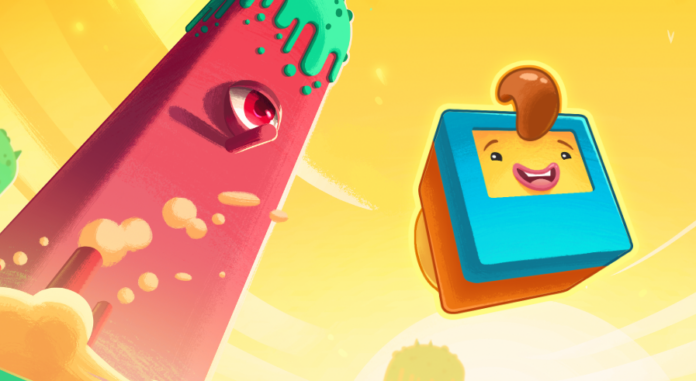When Jonathan Barbosa Dijkstra lost his job, just before the pandemic hit, he decided to give his dream of making a game by himself a proper go. He took some online courses on programming and he was in business, as a solo dev operating under the name of Frambosa, only six months later. “It’s not hard to stay motivated if you really enjoy what you’re doing”, he says. “This project was also a major learning experience for me. And I have found that the excitement of learning something new is a great motivator.”
Halfway through the project Barbosa Dijkstra became a father for the first time. It gives him ‘a lot of nice family moments in between work that keep me going’. But going through 3 years of development by himself has made him realize that solo is not really for him. “I would love to be part of a small team where you’ve got your peers and still have a big impact on the game.” So, his solo debut game Billy Bumbum might be the first and last game he made as a one-man-dev-team.
Why did you become a solo developer?
“I became a solo developer 3 years ago after losing my job just before the pandemic hit. For me, and for others I’m sure, making your own games is ‘the dream’. I took the opportunity of being jobless and having a reasonably favorable financial situation and living conditions to actually give that dream a go. I taught myself programming via online courses and 6 months later I started working on my first game Billy Bumbum.”
What are the biggest advantages of working solo?
“You’ve got full control over the entire project and its creative direction, which is very liberating. And you can do it in your own time, which was especially great because I became a parent during development. So, it was great to be able to make little pockets of time on ‘dev days’ to spend with my son.An additional advantage for me was that I learned a ton! I had literally just started programming 6 months prior and now I’m building a full game? This whole process was a big learning experience on so many fronts.”
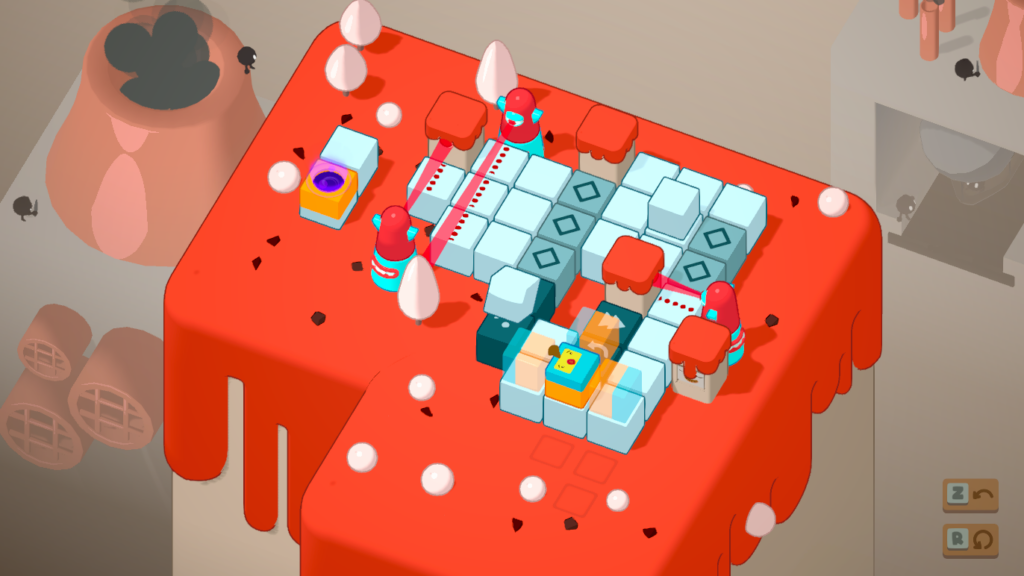
And the biggest pitfalls?
“Having full control over the entire project and its creative direction counts as a pitfall too. When working in a team ideas bounce around, feedback is given etc. All this before there’s ever any playtesting done. I realized I missed this aspect a lot. Because I just picked up programming I also missed having people around that ‘knew their stuff’ better than I did. In this case I would’ve loved to have a senior programmer around to ask questions to and help me learn. It would’ve made everything go so much faster. Another pitfall would be the fact that, because it’s your own project, it’s much easier to take your work home with you, blurring the lines between work and home. This is never a good thing.”
What’s your creative process?
“It usually starts with a ‘think pad’, which is basically just a google doc where I write down anything to do with a specific game concept. Ideas, stuff to avoid, stuff to look out for, questions and such. This doc often contradicts itself because it’s literally just my thoughts on paper. Then I try to make sense of that entire doc and see if I can make a coherent fun core design out of it. This usually takes the shape of flowcharts with crudely drawn screen sketches. If I’m happy with this design, I’ll prototype it and test that prototype. From there I take it step by step. Develop, test, develop, test.”
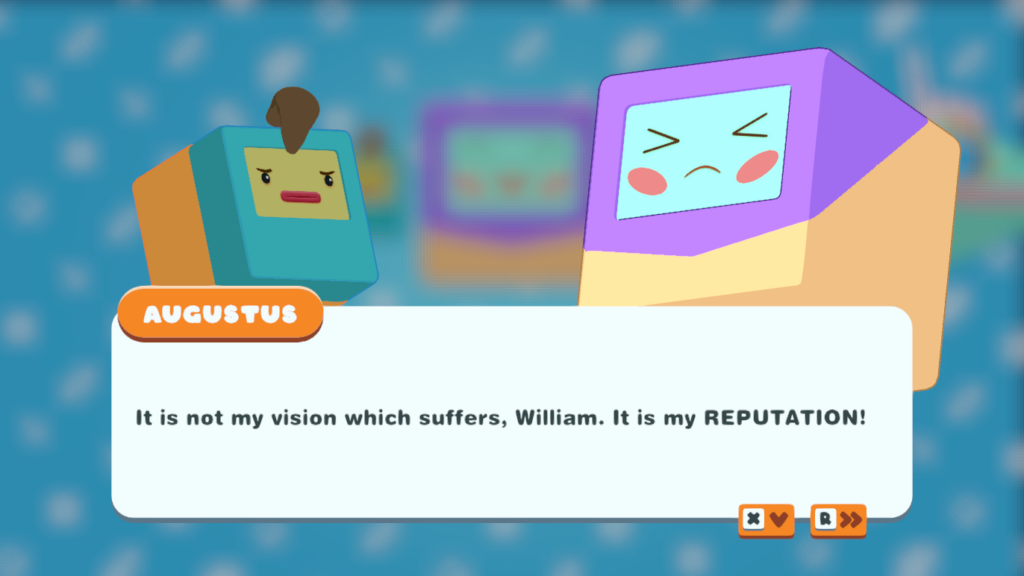
How do you stay motivated through (years of) development?
“It’s not hard to stay motivated if you really enjoy what you’re doing. But for me it might be different than for other solo devs. This project was also a major learning experience for me, especially concerning programming. And I have found that the excitement of learning something new is a great motivator.”
Will you ever work in a team or is it only solo for you?
“Having worked solo (with work-for-hires, so technically not really solo?) for 3 years and looking at the ups and downs of it, I don’t think solo development is something I’d want to do forever. It becomes a bit of a lonely situation sometimes. The points I mentioned as pitfalls outweigh the advantages in my opinion. I would love to be part of a small team where you’ve got your peers and still have a big impact on the game.”
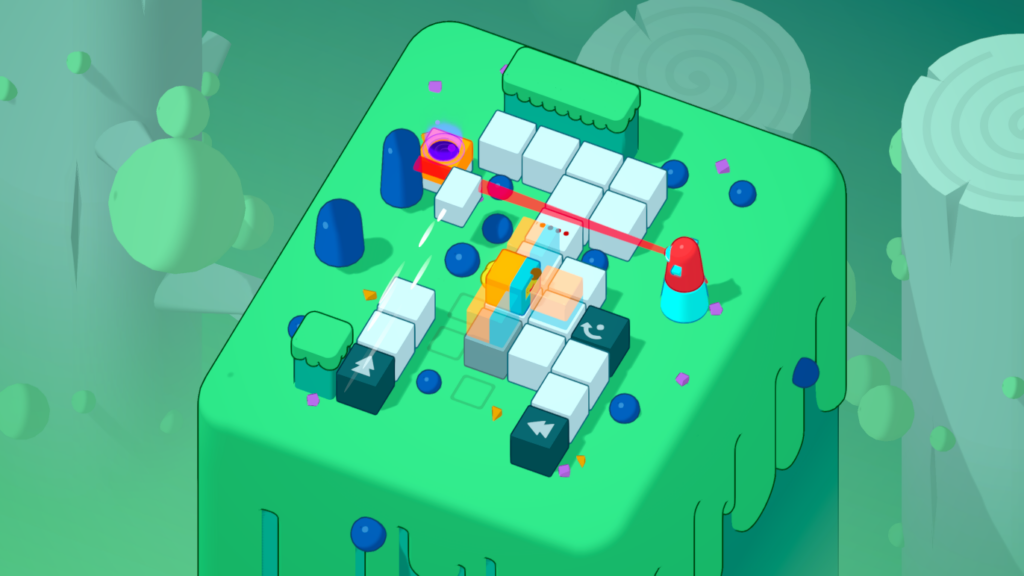
Billy Bumbum is your solo debut game. How did you come up with the idea of the game?
“Because I had just learned some basic programming, the initial idea was to make a small game from A to Z and publish it to test what I could already achieve with my newfound knowledge. I played around with a few ideas and one of them was a simple cube rolling puzzle game. I figured that’s something that’s probably relatively easy to make. I made a very rudimentary version of it and had folks test it. The reactions were great which led me to continue with it.”
“However, cubes aren’t very exciting, so I had to think of a fun theme for the game. One of the first options that comes to mind is to make the cube a character. A character has a face on one of the sides. Then automatically my thought went “Well then obviously it has a butt sticking out of the other side”. And the whole style just kind of flowed from there with the help of Billy’s two artists Tom van der Linden and Ilona van Oudenaarden.”
What’s the biggest lesson you learned from this project?
“There are many lessons! But I think the main lesson is to test more, test sooner, test elaborately and don’t only test for the game’s mechanics. Halfway through development I had to make a big adjustment because it turned out that for a lot of people the orientation part of the cube flipping was super hard. So I made a shift in puzzle design to negate that. If I had tested more elaborately sooner I’m confident I would’ve been able to catch this sooner and wouldn’t have to pivot mid development.”
“Another example of this is the combination of the gameplay with its visual theme. I’m finding that there’s a lot of people that really like the cute, colorful, cheeky theme of the game. But these people aren’t necessarily the people that play challenging puzzle games. Same goes for the other way around. I should’ve tested for this too.”
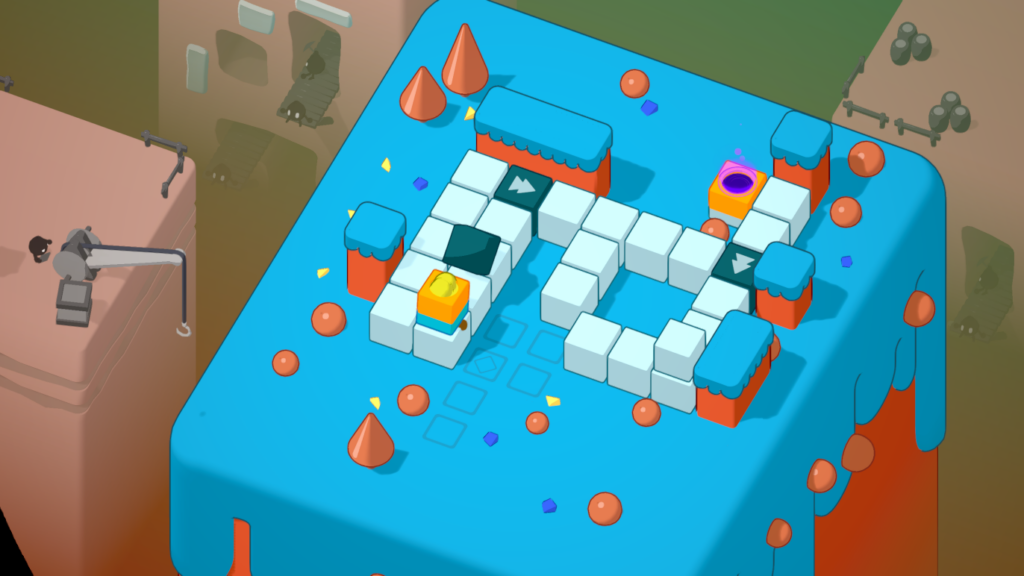
The toll on your mental health can be quite high as a solo developer. How do you deal with that?
“I don’t think it took a big toll on my mental health to be honest. I live together and have recently become a dad, so there’s a lot of nice family moments in between work that keep me going. And generally I maintained a pretty healthy work life balance for the most part of it. The last months of ‘crunch time’ were a bit demanding on all of us though, but it was doable because we knew the end was in sight. Another point is that I’m not financially dependent on the success of Billy. I think that takes a huge chunk of stress away from a developer.”
Billy Bumbum is available on Steam and will be launching on Nintendo Switch in the near future.

